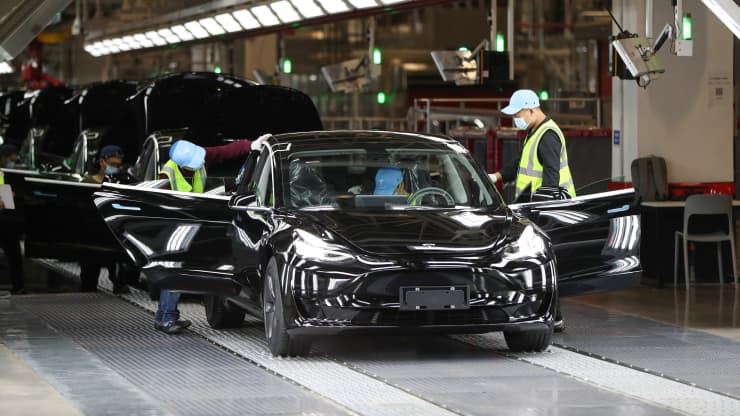According to a report by CNBC on February 7th, in response to the semiconductor shortage, Tesla has decided to reduce the production of one electronic component in the steering system of Model 3 and Model Y produced in the Shanghai factory.
According to the report, Tesla also discussed whether the reduced components would affect the use of FSD function for car owners internally, but they ultimately decided not to notify car owners of this change. As per Tesla employees, the reduction will not affect the current level of FSD usage, but affected car owners will need to install the component from Tesla service centers if Tesla releases any FSD updates in the future.
The reduced production affects Model 3 and Model Y produced in the Shanghai factory, and the affected vehicles will not only be sold in China but also exported to Australia, the UK, and other European countries.
This is not Tesla’s first time responding to the chip shortage crisis by reducing production. On January 26, 2021, Musk said during a conference call that Tesla is facing a “chip shortage hell” in 2021. He pointed out that the company had difficulty obtaining “seat adjustment chips,” and canceled the front passenger lumbar support function for Model 3/Y at the beginning of 2021.
In the past, it usually takes an automaker over four months to test and verify changes to a vehicle, but Tesla only took a few weeks to decide to reduce this electronic control unit.
🔗 Source: CNBC
This article is a translation by ChatGPT of a Chinese report from 42HOW. If you have any questions about it, please email bd@42how.com.
